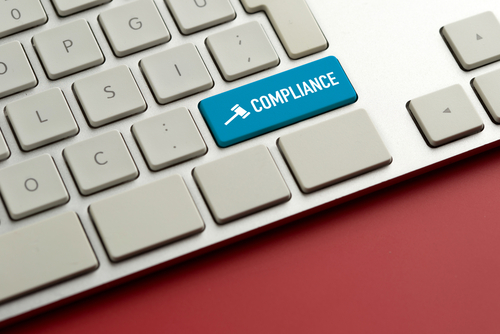The Life Sciences industry is a uniquely complex regulatory landscape where compliance with the law, including stringent FDA requirements and diverse global market standards, is table stakes. It’s also a cornerstone of brand reputation, so it is important that employees throughout the organization are not only made aware of regulations — but also are personally committed to delivering on them. That requires fostering a culture of compliance.

Why Establish a Culture of Compliance?
A culture of compliance will do more for your bottom line than simply mitigate legal risks—it will also protect and build your company’s reputation in the market. By embedding compliance into the corporate culture, companies not only safeguard against regulatory penalties but also build trust with patients, healthcare providers, and business partners.
Because it is continually evolving, compliance can feel like a moving target. Keeping employees informed requires constant vigilance — but it also requires that your company build a culture of compliance — so that everyone is empowered and incentivized to meet legal obligations.
And of course, the risks of non-compliance likewise extend beyond hefty fines and legal battles. They can include severe repercussions like the loss of business licenses and significant damage to the company’s public image, which can undermine patient trust and investor confidence.
Fostering a robust culture of compliance will prove essential to ensuring both operational integrity and competitive advantage.
5 Strategies for Building a Culture of Compliance through Employee Education
1. Make Comprehensive Compliance Information Widely Available
Effective compliance programs require information and training. That means establishing a single and comprehensive source of truth for up-to-date regulations and compliance information — anywhere your organization operates
2. Create Engaging and Relevant Training
Train employees throughout the organization on what is required in their role — from R&D to sales. Leveraging a variety of educational tools, such as e-learning modules, in-person workshops, and regular training sessions, ensures that employees at all levels understand their compliance obligations. Make training engaging and directly relevant to employees’ roles to enhance learning retention and practical application.
3. Get Leadership Involved
Leadership plays a critical role in fostering a compliance-focused culture by setting an example and providing visible support for compliance initiatives. Active participation by senior executives in compliance training and communications underscores the company’s commitment to compliance.
4. Use Continuous Feedback and Improvement
A culture of continuous improvement in compliance programs can be cultivated by integrating regular feedback mechanisms. Tools such as surveys, focus groups, and feedback forms allow the company to gather insights on the effectiveness of training programs and identify areas for improvement.
5. Recognize and Reward Compliance
Recognizing and rewarding compliance adherence motivates employees and reinforces the compliance culture. Reward systems that acknowledge individuals or teams for exemplary compliance behavior might include bonuses, team or public recognition, or opportunities for career advancement.
Empowering Compliance: A Path Forward
These are just some of the critical strategies for embedding a culture of compliance through targeted education, continuous improvement, and strong leadership involvement. It’s vital for every Life Sciences company to regularly review and enhance their compliance training practices, emphasizing ongoing improvement to maintain and exceed regulatory standards.
Lack of knowledge is often one of the biggest sources of resistance to compliance policies, driving skepticism about their importance. Ensure adequate access to compliance resources—and ensure you are allocating time, money, and personnel to compliance training with clear justification and strategic planning.
Need help with compliance? Consult with our RLDatix Life Sciences compliance specialists to develop or refine your compliance training programs, ensuring they remain current and effective. Contact our team, today.
